Reformation und konfessionelles Zeitalter
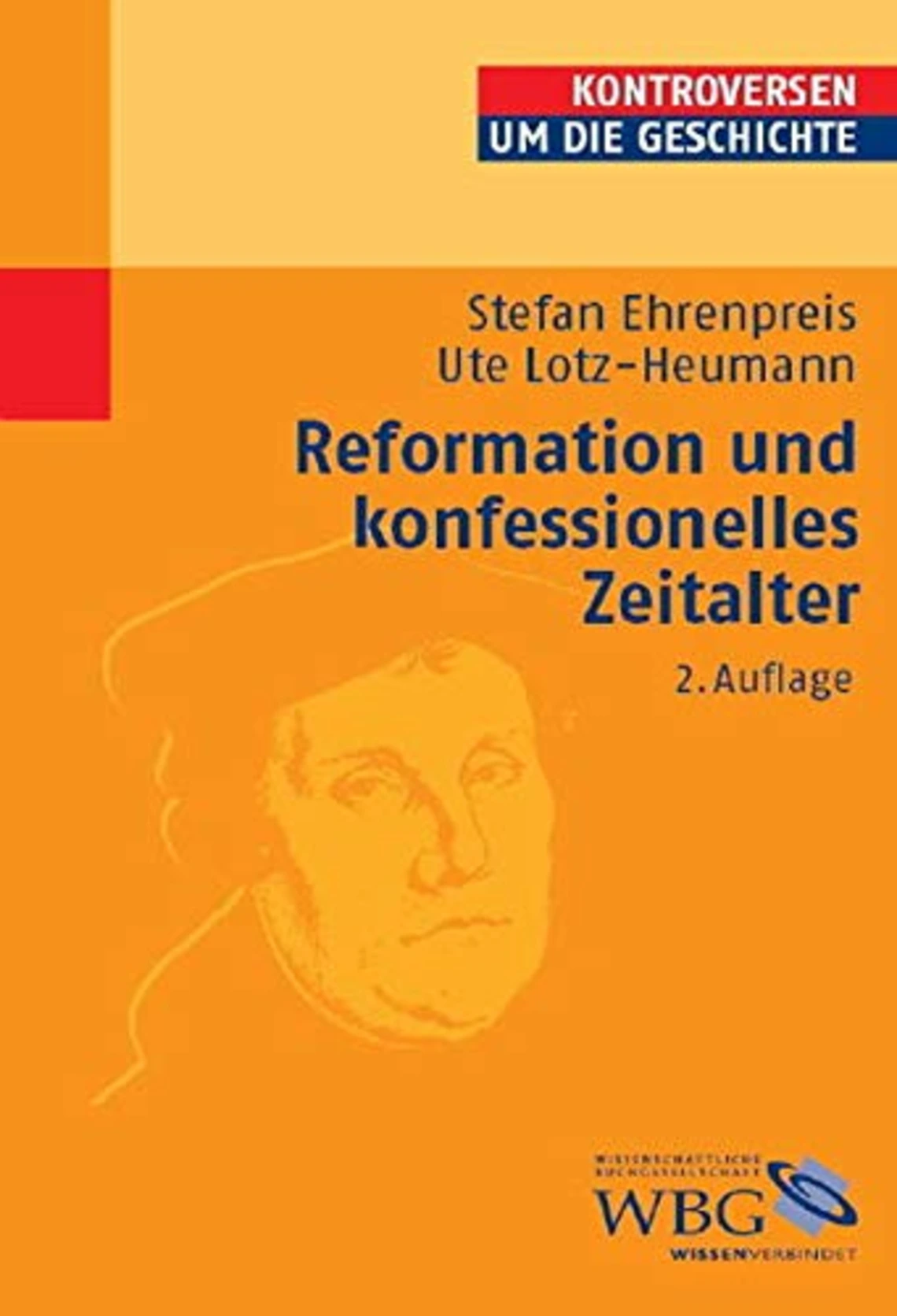

Overwhelmingly, Martin Luther has been treated as the generator of ideas concerning the relationship between God and humankind. The Personal Luther deliberately departs from that church-historiographic tradition. Luther was a voluble and irrepressible divine. Even though he had multiple ancillary interests, such as singing, playing the lute, appreciating the complexities of nature, and observing his children, his preoccupation was, as he quickly saw it, bringing the Word of God to the people. This book is not about Luther’s theology except insofar as any ideational construct is itself an expression of the thinker who frames it. Luther frequently couched his affective utterances within a theological framework. Nor is it a biography; it does not portray a whole life. Rather, it concentrates on several heretofore neglected aspects of the Reformer’s existence and personality. The subjects that appear in this book are meant to demonstrate what such core-taking on a range of mainly unexplored facets of the Reformer’s personality and experience can yield. It will open the way for other secular researchers to explore the seemingly endless interests of this complicated individual. It will also show that perspectives of cultural historians offer the broadest possible evidentiary base within which to analyze a figure of the past.
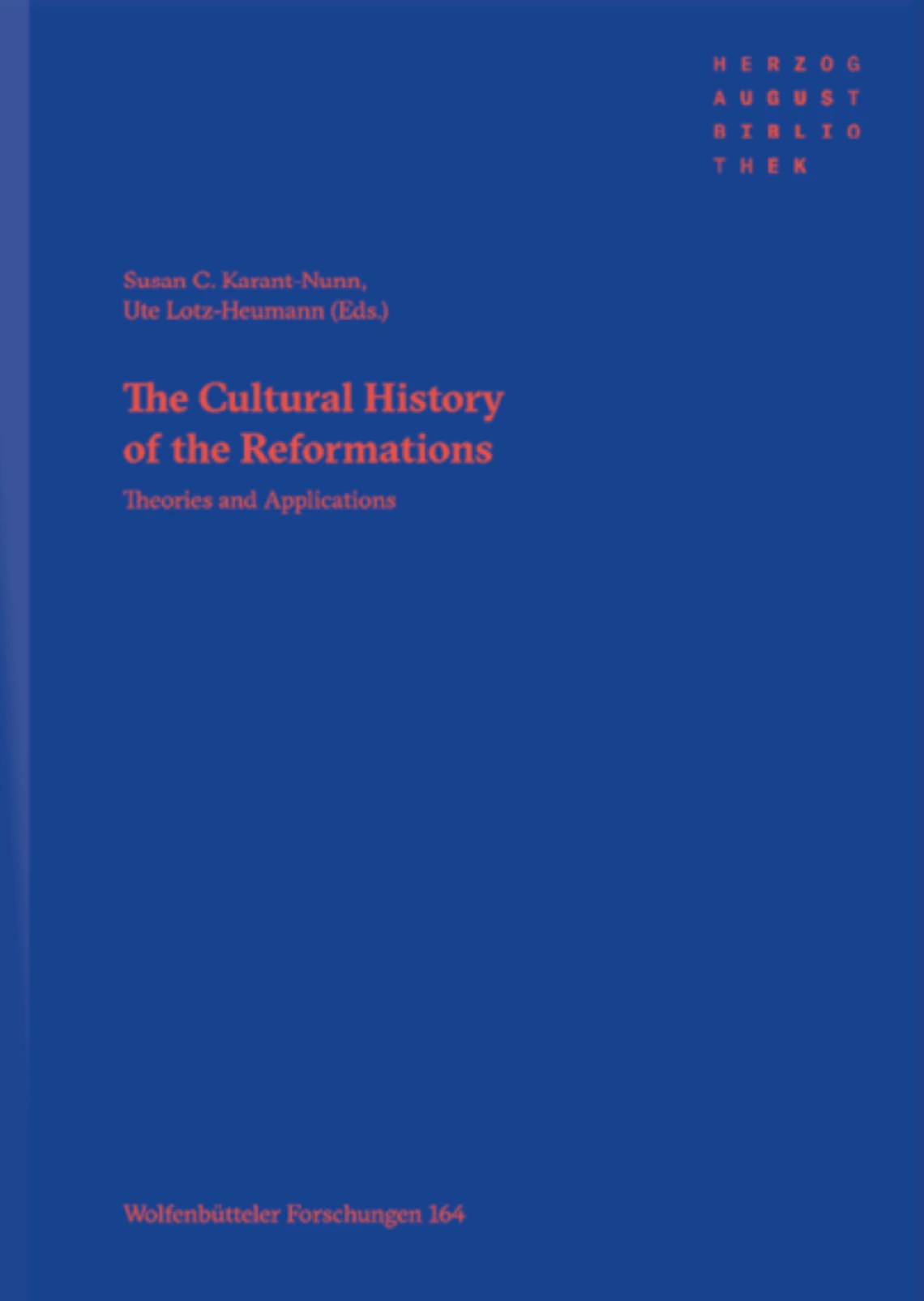
Despite the decisive turn toward cultural history in the last generation, scholars working on the Reformation have only gradually perceived the riches that are available if they place sixteenth-century Reformers and their theological innovations within a broader context of established beliefs and practices. Inspired by such pioneers as Natalie Zemon Davis and Robert W. Scribner, this aggregation of leading historians demonstrates that cultural approaches to the past may suggest whole new opportunities for research: Time (Helmut Puff), shared spaces (David Luebke), the senses (Philip Hahn), religious singing (Francisca Loetz), the use of images (Bridget Heal), healing and material culture (Ute Lotz-Heumann), physico-theology (Kaspar von Greyerz), reproduction and ensoulment (Kathleen Crowther), Calvin's sexuality (Susan Karant-Nunn), women’s spirituality (Alexandra Walsham), the translation of texts (Renate Dürr), and missionary practices (Ulrike Strasser). Charles Zika and Merry Wiesner-Hanks admit us to the perusal of historiographic essays that reveal both their profound expertise and their personal involvement in our profession. Within Reformation studies, this collection signals both a perspective attained by the time of the five-hundredth anniversary of the German Reformation, and a milestone from which a new and innovative generation of researchers will depart.
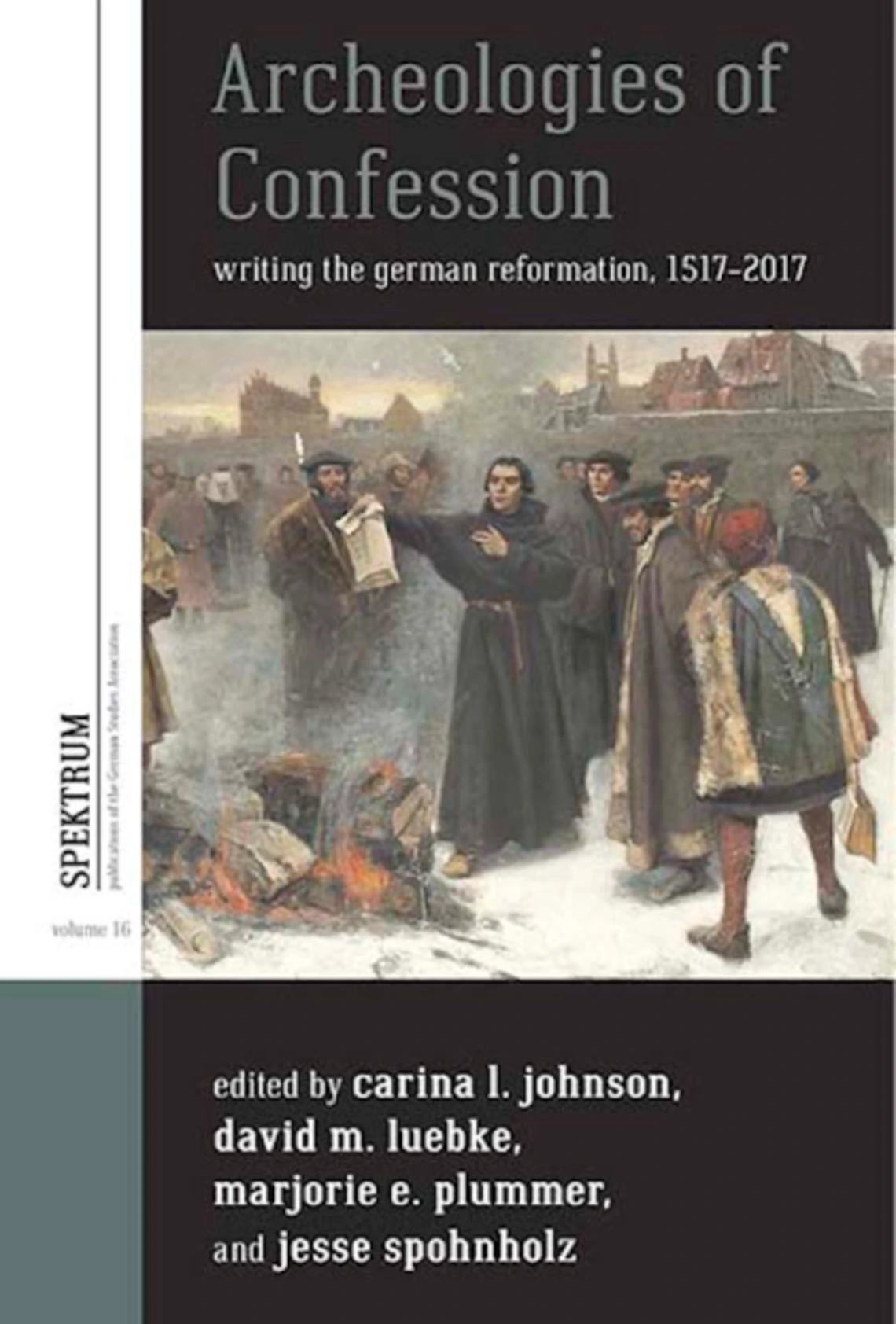
Modern religious identities are rooted in collective memories that are constantly made and remade across generations. How do these mutations of memory distort our picture of historical change and the ways that historical actors perceive it? Can one give voice to those whom history has forgotten? The essays collected here examine the formation of religious identities during the Reformation in Germany through case studies of remembering and forgetting—instances in which patterns and practices of religious plurality were excised from historical memory. By tracing their ramifications through the centuries, Archeologies of Confession carefully reconstructs the often surprising histories of plurality that have otherwise been lost or obscured.
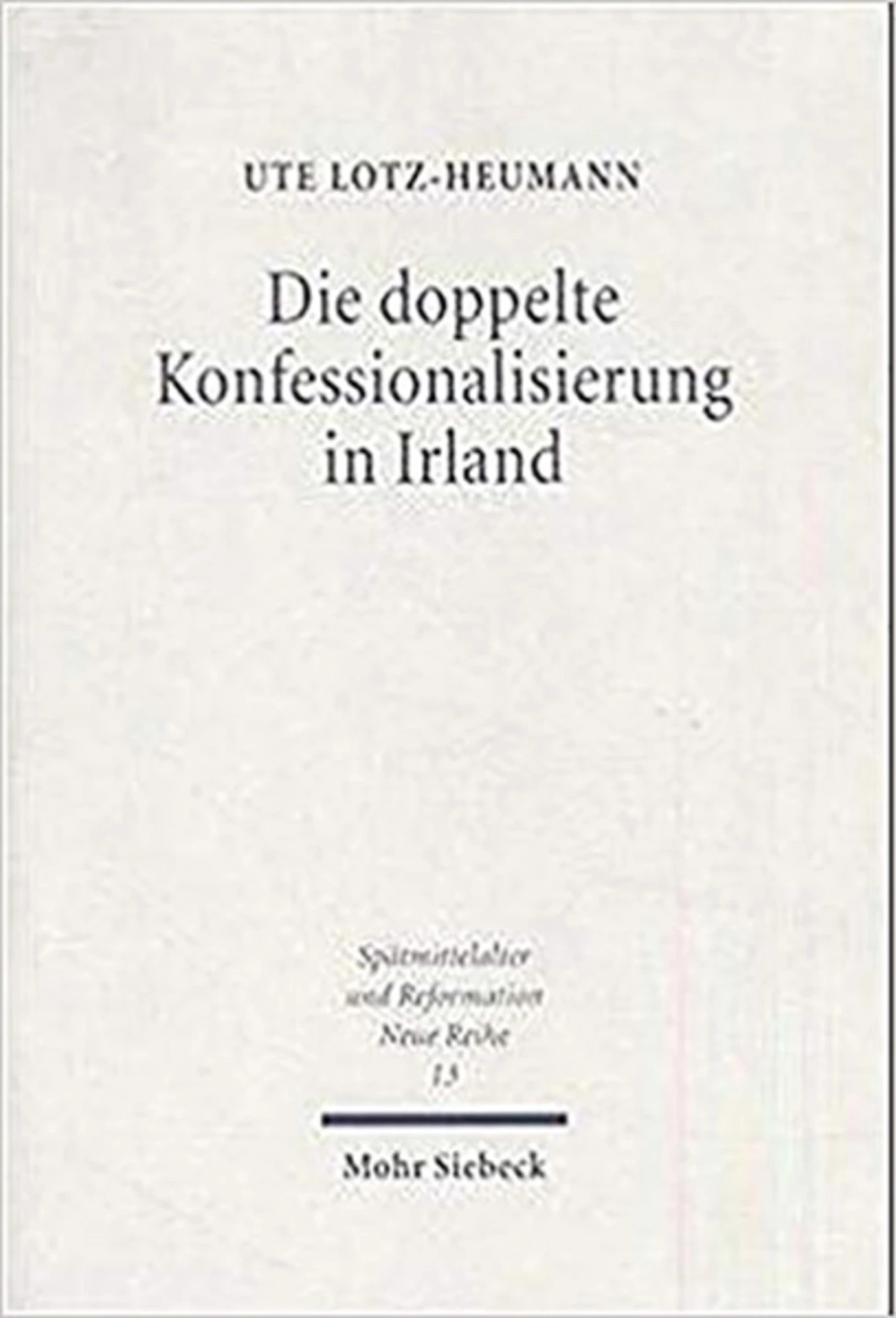
Konflikt und Koexistenz im 16. und in der ersten Hälfte des 17. Jahrhunderts
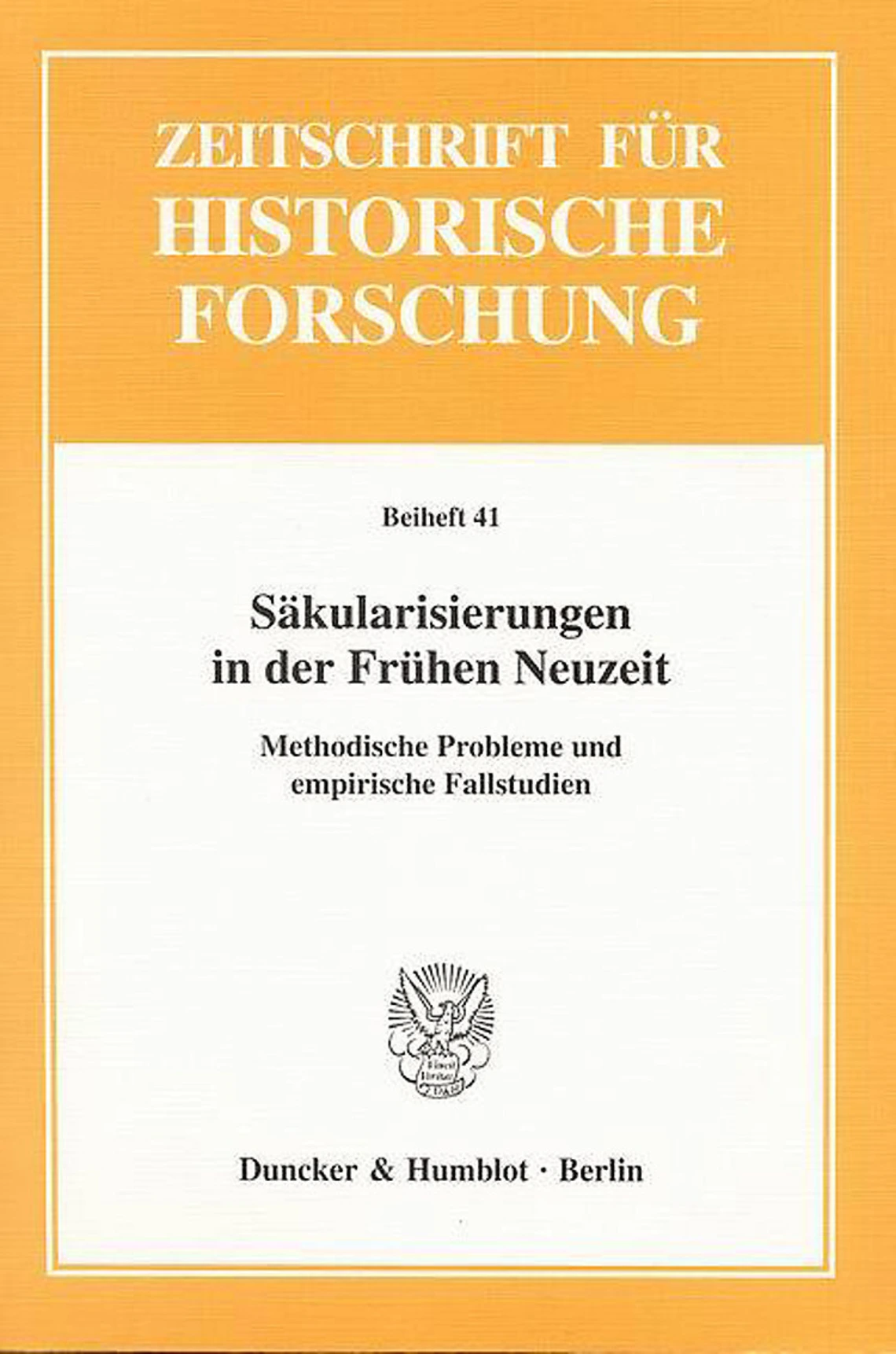
Methodische Probleme und empirische Fallstudien